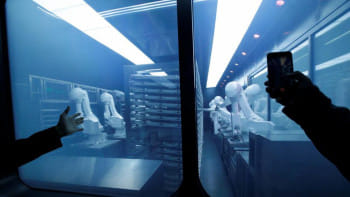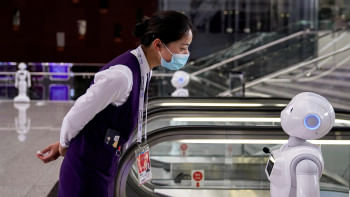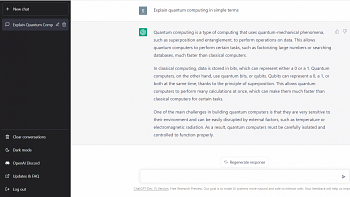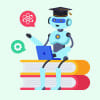In the age of AI, empathy could help save your job

Imagine what will happen to us in 2040. People work from anywhere. ChatGPT-like systems are ubiquitous. Every piece of equipment is planted with generative artificial intelligence (AI) capabilities, so people like having personal assistants helping them from one morning to the next to do things.
People in the future do not go to the office because most office functions are replaced by AI. Workers are no longer needed in factories because smart machines operate the production lines all year long, and in a continuous and automated pursuit to achieve efficiencies.
The factories still need managers and efficiency analysts, but they are now replaced by algorithms that make decisions for the smart robots in the factory lines. Human resources and finance teams will vanish; the intelligent enterprise resource systems, with generative AI, will replace them and the systems do much better jobs than human officers. Offices are now moved to virtual spaces, such as the metaverse; today's office buildings will be transformed into residential areas.
Most technical skills are replaced by AI and robots, including skills to write reports or opinion articles like this. This is just like the time when people who excelled in mathematical operations were no longer hired and were replaced by calculators and computers. What is now needed are people with a higher level of skills, such as programming and system analysis. However, in the future, some people will possess skills that are still in-demand in the market.
They are those people who are very savvy in developing new products the market falls in love with. These are the people who devote their lives to understanding the needs of other people, creating products and testing those products in a simulated environment before they launch products on the market.
The shift from technical to soft-skill focused education may be needed earlier than expected. The issue is our education institutions have been very good at evaluating technical skills, but they are less savvy at measuring and evaluating soft skills.
They are the masters of empathy; they know how to unpack the "hidden needs" of the customers. In design-thinking circles, the "hidden needs" are often treated as the holy grail of innovations. Think of how platform businesses, such as Uber, unpack the "hidden needs" of people who need practical, reliable and safe transportation.
These platform businesses are able to find the "hidden needs" of the consumers and provide innovative ways to fulfil the unspoken needs (it is unspoken because no one knows they need it until they use the innovation). The "hidden needs" are not easily captured even by in-depth analysis of behaviour of the customers, something AI machines can do best, making clusters, projections and predictions based on existing behavioural data.
Unpacking "hidden needs" requires empathy, a process whereby a human person recognises and acknowledges the feeling and emotions (e.g. the tragedy one went through, the happiness they experience) of other human persons.
So, this is a glimpse of how the future might look. In this future, educated people may know about a lot of things, but they may not have the technical skills today's people have because robots will help them to do technical jobs. Most people in the future will be creators for other people; that is why empathy skills will become the currency of success in the future. So, how do we begin to prepare for this future?
Start the transformation to develop a human-centered mindset in all walks of life as early as possible. Everyone needs to be familiar with a people-focused approach. The public and the private sectors, including the education sectors, need to step up and to introduce human-centered approaches in their daily activities. This implies soft-skills education will become more important and should be placed on at least an equal footing with the traditional hard-skill education.
World Economic Forum highlighted creativity as one of the required skills in 2025. Creativity is an important ingredient in empathising. The shift from technical to soft-skill focused education may be needed earlier than expected. The issue is our education institutions have been very good at evaluating technical skills, but they are less savvy at measuring and evaluating soft skills. Many treat soft skills as subjects to be taught outside the curriculum. If not, soft skills are treated as if they are of secondary importance. Thus, education researchers should come up with effective and efficient ways to measure in-curriculum soft-skill learning processes. For example, design-thinking education researchers should come up with tools and ways to measure how a student can do better at empathising.
The article was first published in The Jakarta Post, an ANN partner of The Daily Star.
Ari Margiono is Deputy Campus Director, Binus University in Indonesia.

 For all latest news, follow The Daily Star's Google News channel.
For all latest news, follow The Daily Star's Google News channel. 













Comments